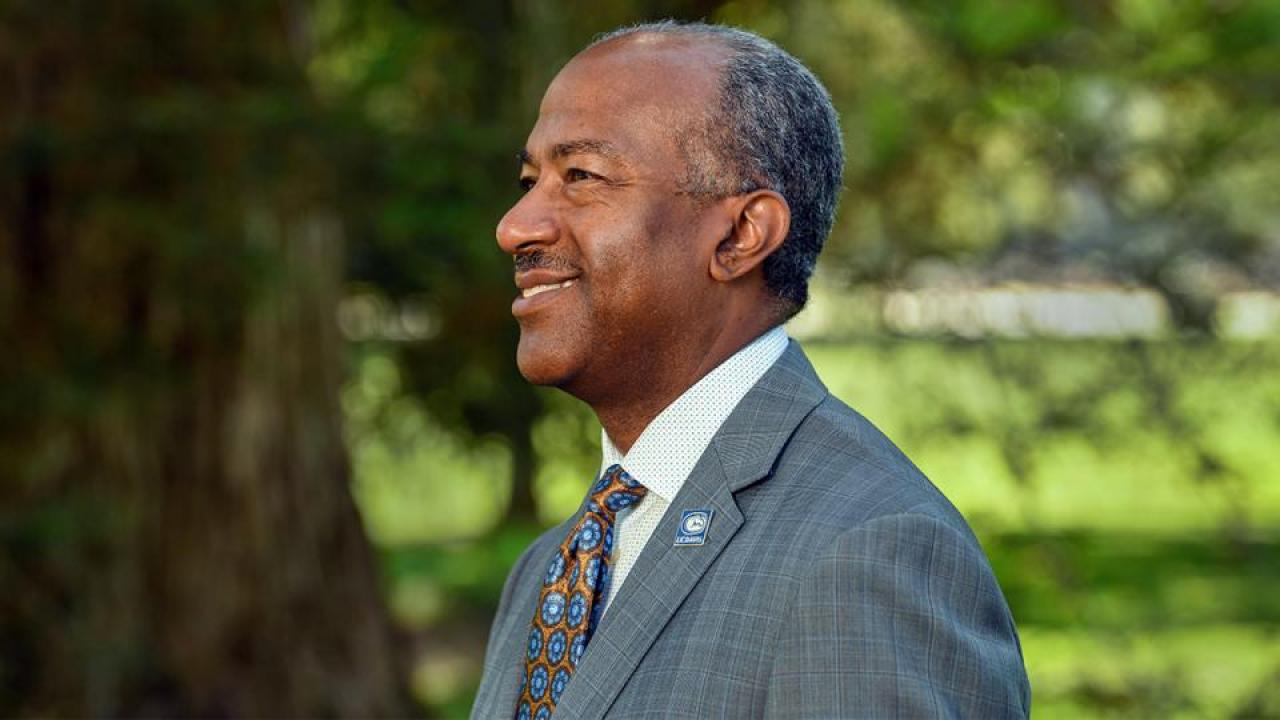
Chancellor May: Remember the Meaning of Juneteenth
To the UC Davis community:
As I prepare to celebrate Juneteenth with my family, I’ve been thinking about how this event takes on a new level of importance this year. Our streets have been filled with protests over the last four weeks following the death of George Floyd. It’s clear that we’re in deep need of unity during these deeply divisive and disrupted times.
Tomorrow, June 19, is a date that marks a pivotal event in our country’s history. While the Emancipation Proclamation became official on Jan. 1, 1863, many enslaved Africans were in states where slavery continued or where they didn’t know that they were free. On June 19, 1865, Union Col. Gordon Granger informed more than 250,000 enslaved African Americans in Texas that they were free, and the 13th Amendment followed on Dec. 8, 1865. The now annual celebration of Juneteenth, in recognition of independence from slavery, began a year later, June 19, 1866.
However, progress sometimes moves at a glacial pace. After 155 years, many people in our nation are still pursuing the promise of freedom, equality and justice. You see that from the protests gripping the nation, where people, especially young people, are demanding change.
I remain hopeful that better days are ahead. One of the first steps we can all take is to learn about and learn from one another. That includes the full spectrum of diversity.
This year, I’m hopeful that many more people in our UC Davis community will take the opportunity to learn more about Juneteenth.
Juneteenth is an opportunity to recognize how our country was able to rise above a painful chapter in our history. Juneteenth also allows us to reflect on how much work still needs to be done in the name of social justice. Observing Juneteenth allows us to join together in the name of freedom, justice and the power of community.
Juneteenth is one of our country’s oldest celebrations of the abolition of slavery. California recognizes the third Saturday of June as Juneteenth National Freedom Day: A Day of Observance. Though Juneteenth is not a federal holiday, I agree with University of California President Janet Napolitano in supporting supervisors and managers to allow employees to use vacation or accrued time off to celebrate freely.
I encourage everyone to celebrate and learn more at an online Juneteenth festival. This event runs from June 19 to 28 and is co-sponsored by Sac Cultural Hub, a partner of UC Davis’ Office of Diversity, Equity and Inclusion. You’ll find entertainment, virtual exhibits, seminars, community forums and much more.
I wish you all a festive Juneteenth that’s full of harmony, happiness and good health.
Best regards,
Gary S. May
Chancellor